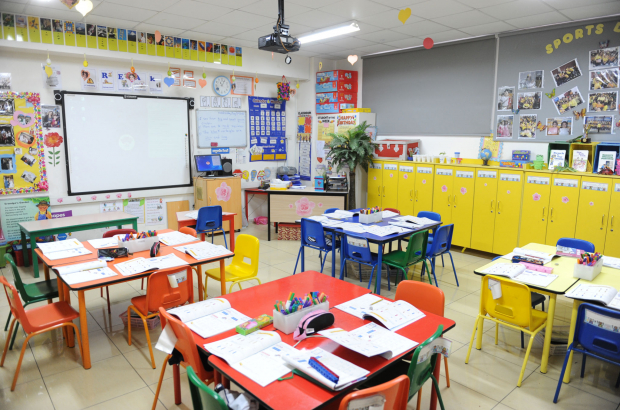- Daily & Weekly newsletters
- Buy & download The Bulletin
- Comment on our articles
10 changes to life in Belgium from 1 September
From school to public transport, culture to healthcare, 1 September brings several changes here in Belgium. Here's a quick recap:
1. Back to school, from five years old
Almost two million children in Belgium return to school on Tuesday. For many it will be their first time in the classroom since March. From Tuesday, the compulsory school age has been dropped from six to five. Pupils are allowed nine half-days of unjustified absence per school year. Other absences require a medical certificate or other proof.
Before the school holidays, education ministers from Belgium's three language communities agreed on four colour-coded levels determing how children will return to school, based on the current coronavirus situation. The return to school will be under the "yellow" level, meaning all pupils will be in class five days a week.
If the situation worsens in certain communes or provinces, these could become "orange". Nursery and primary school attendance would remain the same, but secondary school classes would be halved in size, with pupils attending two days a week (Monday-Tuesday or Thursday-Friday) and expected to follow remote teaching methods for the rest of the week. The concept of "bubbles" - isolated individual classes - remains in place. If two pupils or a member of staff tests positive, the bubble would stay home.
2. Bigger audiences at events
The rules on social distancing in cultural venues will be relaxed on 1 September. Visitors must maintain a one-metre distance from others, instead of 1.5 metres. The new rule should make it easier for theatres, cinemas and other performance venues to fill seats. Everyone aged 12 and over must still wear a mask, except performers on stage. Venues must ensure a smooth flow of visitors entering and leaving, to avoid crowds.
3. Stib returns to normal
Public transport services in Brussels will operate a full capacity again from 1 September, Stib has announced. "We still expect to transport fewer people than before the coronavirus crisis, in particular because of remote working," said a Stib spokesman. Vehicles will continue to be disinfected daily and wearing a mask remains compulsory. Meanwhile, the SNCB is expected to launch an app this month that will allow passengers to find out how busy a train is before boarding.
4. More flights, less flights
Brussels Airlines will increase its flights this month, with the aim of returning to 45% of its normal flight schedule, using 27 aircraft. Added destinations from September include Basel, Birmingham, Bologna, Edinburgh, Gothenburg, Milan and Warsaw. Meanwhile, Ryanair is cutting 20% of its flights in September, due to a decrease in customer interest due to the current coronavirus situation in Europe.
5. Lower speed on Brussels ring
The general speed limit on the Brussels ring will be cut from 120kph to 100kph from Tuesday - but only in the parts of the motorway passing through Flanders and the Brussels region itself. The Walloon stretch of the ring road remains 120kph. Note that some parts of the ring already have a speed limit lower than 100kph, which remains unchanged.
6. Changes to city centre streets
The City of Brussels is making some changes to its 20kph zone in the centre, which was introduced in May. Until now, pedestrians and cyclists had priority over motor vehicles on all roads within the Brussels inner ring road - making it possible for pedestrians to walk in the street to ensure safe distancing. From 1 September, pedestrians still have priority in certain zones, highlighted with blue signposts. But they will no longer have priority on some major roads used by trams and buses in the city centre, where a 30kph speed limit will now apply.
7. Increased access to legal aid
The income threshold to benefit from legal aid in Belgium increases by €200 on 1 September to €1,226 net per month for a single person (higher thresholds apply for married couples and those with children). The threshold will be gradually increased, in €100 increments, over the next three years to eventually reach €1,526 per month.
8. Tenants no longer protected against eviction
A ban on tenant evictions in the Brussels region, introduced during the coronavirus crisis, expires on 1 September. Socialist union CGSP estimates that about 300 families are at risk of being made homeless if the measure is not extended. The crisis has exacerbated existing social inequalities. The union said: "We ask the government to take responsibility in the defense of the most deprived."
9. Support for carers
From 1 September, Belgium recognises the status of "informal caregiver". This is someone who provides ongoing assistance to a vulnerable person - not necessarily a member of the same family. Caregivers can apply for this official status from their health insurer. Private-sector workers who are recognised as a caregiver will be able to request special leave and an allowance from the national employment office Onem. The rules should also apply to public-sector workers later this year.
10. Tougher rules on meal vouchers
Paying for your entire weekly shop with meal vouchers will be a thing of the past from 1 September, as supermarkets introduce stricter rules. Colruyt was first out of the blocks, announcing it would differentiate between food and non-food products - with restaurant vouchers only accepted for the first category. Delhaize is doing the same and other supermarkets are expected to follow.









